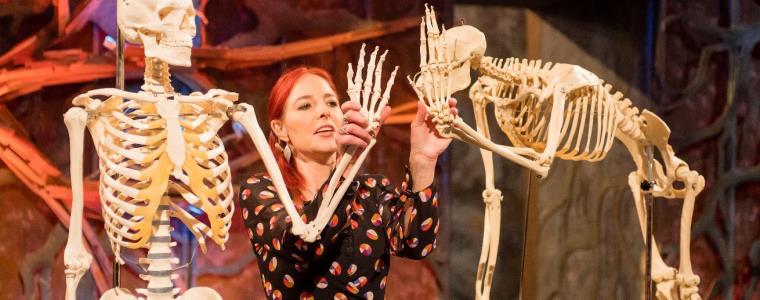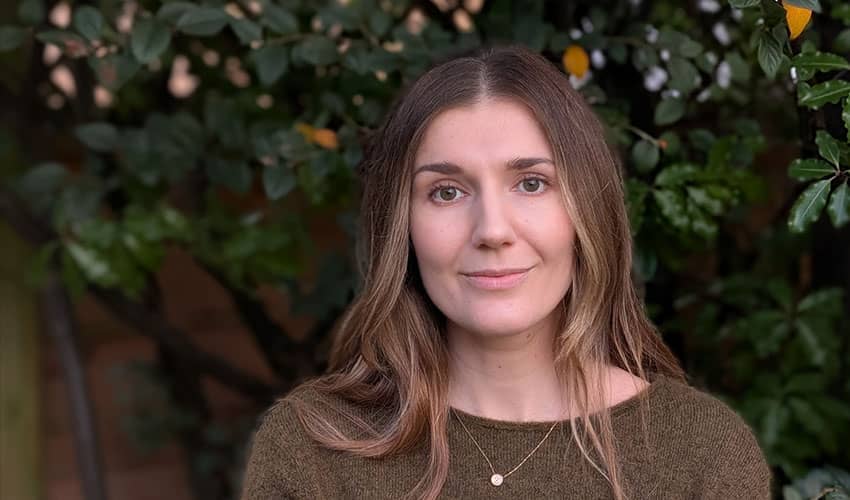Academics work with Royal Institution to broaden appeal of flagship science series

Researchers at UWE Bristol have made a series of recommendations aimed at building on the existing reach of the UK's flagship science series.
A team of academics from the University's Science Communication Unit were selected by the Royal Institution (Ri) to explore ways to continue modernising the Christmas Lectures, an iconic series that has run since 1825.
They conducted research to explore strengths and opportunities for improving the series, created for children and televised annually for the past 50 years fronted by presenters including David Attenborough and Carl Sagan.
Following interviews with children attending the 2017 and 2018 events, a social media analysis of the 2018 broadcasts and survey of science enthusiasts, researchers found the lectures were cherished by audiences of all ages but format changes could help broaden their appeal among young people, as well as older audiences.
They recommended exploring ways that the channel and time of the broadcasts (currently BBC4 at 8pm) could be made more suitable for a younger audience, including cutting the lectures down into short clips for social media to reflect changing viewing habits.
The research team, Dr Margarida Sardo, Dr Hannah Little and Dr Laura Fogg-Rogers, noted that some adult viewers believed the lectures were so focused on a younger audience that they lacked appeal for older viewers. To continue to attract a significant adult audience, they recommended creating a companion lecture aimed at older science fans.
Dr Sardo, who led the 18-month evaluation project, said her team's recommendations had been warmly received by the Ri and were now being considered.
She said: "It was a great honour to be selected by the Royal Institution for this project and to present our recommendations for the Christmas Lectures, which are a pillar of science communication in this country. The lectures are internationally admired and we refer to them in our teaching as one of the earliest examples of scientists engaging with the public with institutional backing.
"We're very pleased that the Ri have found our evaluation useful for shaping the future of this seminal series as it approaches its 200th anniversary."
A centrepiece of the national conversation about the place of science in our lives, the lectures were started by scientist Michael Faraday in 1825 and are now designed to be engaging and mind-expanding viewing for people of all ages but particularly children.
A series of three on a single topic, the lectures are filmed in London in mid-December every year then broadcast on three consecutive days during the Christmas period. In 2018, biological anthropologist, author and TV presenter Alice Roberts and genetics expert Aoife McLysaght brought the evolutionary story to life in a series called 'Who Am I?'
In their study, the UWE Bristol researchers found audience members enjoyed the live shows, particularly the engaging, interactive and high-quality demonstrations. TV viewers valued the televised shows and many remarked that watching with relatives had become a family tradition. But some science enthusiasts suggested the Ri needed to re-evaluate its target audience and questioned whether the needs of a live lecture and a TV programme were being confused. Viewers were roundly supportive of female scientists presenting the show, with particular praise reserved for the performance of Alice Roberts and Aoife McLysaght in 2018.
Dr Sardo said: "The overwhelming message that shone through all our research was that people look on the Christmas Lectures with great fondness, recognise their importance in the world of science and want to see them thrive in the future. We look forward to seeing the lectures flourish in the years to come, helping inspire a new generation of scientists to address our biggest challenges."
Dominic McDonald, Head of Education at The Royal Institution, said: "Our vision is for the Lectures to stimulate a national conversation about science's place in society. This piece of work will be invaluable as we work towards that."
Access the full report.
Related news

16 February 2026
UWE Bristol researchers awarded grant to explore impact of asset recovery on offenders
UWE Bristol academics have been awarded funding to explore of the impact of asset recovery on deterring offender behaviour and disrupting crime networks.

10 February 2026
Work by UWE Bristol lecturer features in Government’s National Cancer Plan
Work by a UWE Bristol academic has been included in the Government’s National Cancer Plan.

23 January 2026
On-demand minibus services beneficial in rural areas but face financial challenges, trials suggest
Trials of ‘demand responsive transport’ minibus services boosted connectivity for people in rural and suburban areas, according to a new report produced by UWE Bristol researchers.

18 December 2025
UWE Bristol professor appointed National Institute for Health and Care Excellence CEO
Jonathan Benger CBE, Professor of Emergency Care at UWE Bristol, has been appointed as the new chief executive officer of the National Institute for Health and Care Excellence (NICE).

17 December 2025
Findings revealed from first UK study into experiences of mothers who are survivors of rape pregnancy
UWE Bristol academics have revealed the findings of the first UK-based study of the experiences of mothers who are survivors of rape pregnancy.

11 December 2025
Social media influencer work is far more demanding than it looks, research finds
A study exploring the mental health impacts of social media influencer work has revealed that life online is far more demanding than it appears.

25 November 2025
UWE Bristol experts join film Q&A exploring music and melodrama
Academics will take part in the Cary Comes Home Festival, with a post-screening Q&A exploring music, melodrama and emotional storytelling in classic cinema.

17 November 2025
Urgent reform needed to support ambulance-delivered end of life care, study finds
More than three quarters (78 per cent) of paramedics sometimes fear doing the wrong thing when caring for people in the last year of life, new research has found.

13 November 2025
Bristol’s screen industry experiences “boom-and-bust cycle” after post-pandemic recovery, new research from UWE Bristol finds
New research from UWE Bristol provides detailed insight into Bristol's screen sector.

13 November 2025
New AI research to revolutionise animal welfare
A UWE Bristol research project will combine behavioural science and AI to create technology that understands not only what animals do, but how they feel.

10 November 2025
Lessons from Low Traffic Neighbourhoods will drive better public engagement, study finds
Lessons from Low Traffic Neighbourhoods have informed a new toolkit to improve engagement with the public on challenging local street issues.

06 November 2025
First-of-its-kind study aims to help more people spend their final days at home
A new study will explore how architectural design could support end-of-life care in domestic settings.






